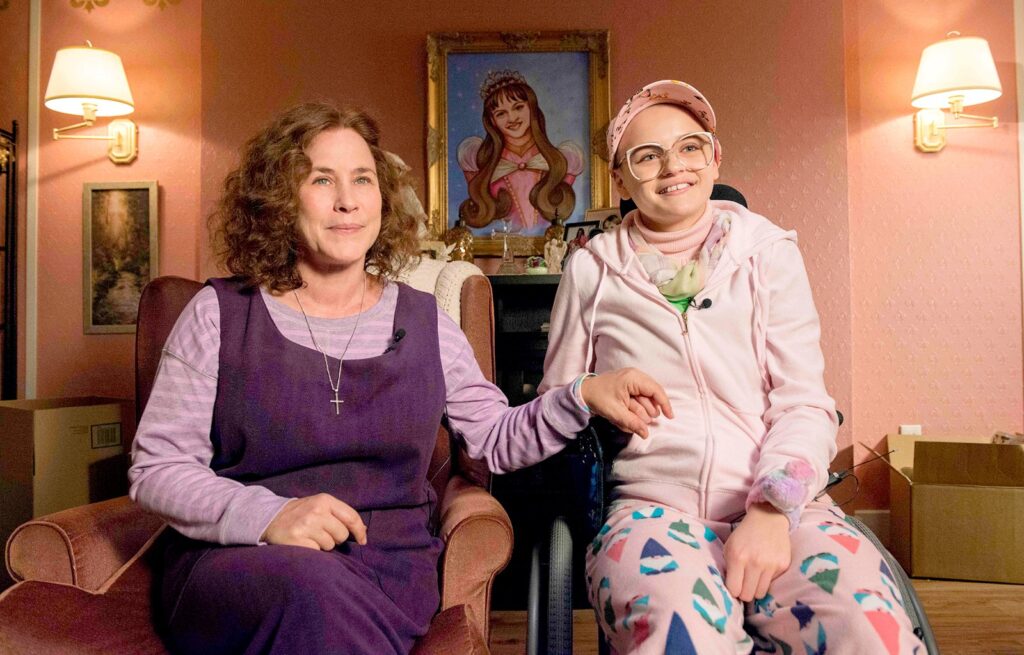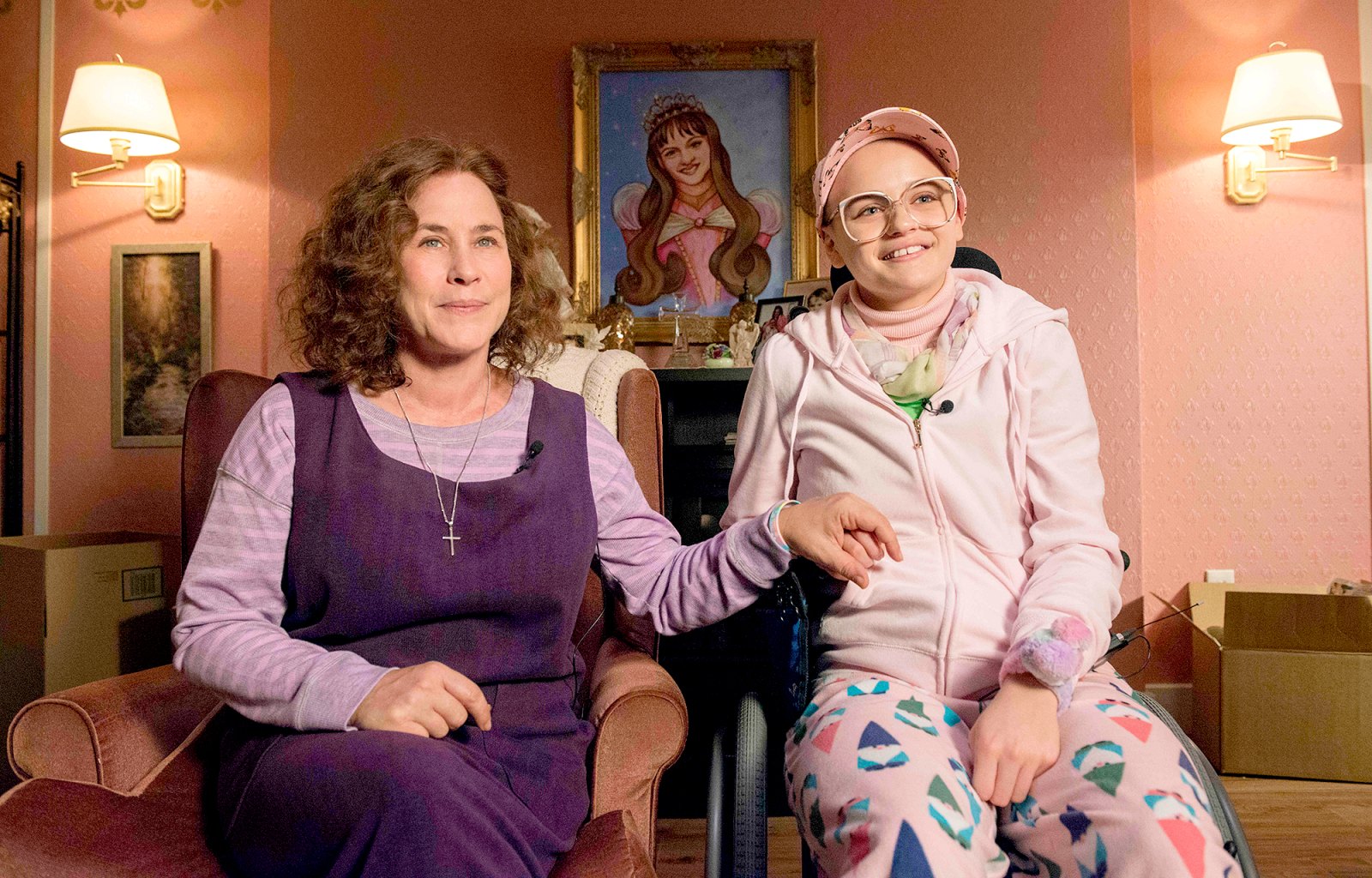
Dee Dee and Gypsy Rose: A Complex Mother-Daughter Story of Deception and Tragedy
The story of Dee Dee Blanchard and her daughter, Gypsy Rose, is a deeply unsettling and tragic tale of Munchausen by proxy, deception, and ultimately, violence. It’s a case that has captivated the public imagination, spawning documentaries, television series, and countless articles, all seeking to unravel the layers of manipulation and abuse that defined their relationship. This article aims to provide a comprehensive overview of the Dee Dee Gypsy Rose saga, exploring the motivations, the deceptions, and the consequences that followed.
The Beginning: Dee Dee’s Claims of Gypsy Rose’s Illnesses
Dee Dee Blanchard presented Gypsy Rose as a chronically ill child suffering from a multitude of ailments. She claimed Gypsy Rose had leukemia, muscular dystrophy, epilepsy, and severe allergies, among other conditions. Dee Dee portrayed herself as a devoted and tireless caregiver, navigating a complex web of medical appointments and treatments. The community rallied around them, offering financial assistance, free trips, and even a house built specifically to accommodate Gypsy Rose’s supposed disabilities.
However, beneath the surface of Dee Dee’s carefully constructed narrative lay a disturbing truth: Gypsy Rose was not nearly as sick as her mother claimed. Dee Dee was later diagnosed with Munchausen by proxy, a mental disorder in which a caregiver fabricates or induces illness in another person, typically a child, to gain attention and sympathy. This deception became the foundation of Gypsy Rose’s entire life.
Gypsy Rose’s Life Under Dee Dee’s Control
From a young age, Gypsy Rose was subjected to unnecessary medical procedures and medications. Dee Dee shaved Gypsy Rose’s head, claiming she lost her hair due to chemotherapy, and forced her to use a wheelchair and feeding tube, despite her ability to walk and eat normally. Gypsy Rose was isolated from her peers and prevented from attending school, further solidifying Dee Dee’s control. Dee Dee managed every aspect of Gypsy Rose’s life, from her medical care to her social interactions, effectively turning her daughter into a prisoner of her own fabricated illness.
As Gypsy Rose grew older, she began to question her mother’s claims. She secretly used the internet to research her supposed conditions and realized that many of Dee Dee’s assertions were false. This realization sparked a growing resentment and a desire for independence.
The Secret Relationship and the Plan
In 2012, Gypsy Rose met Nicholas Godejohn, a man with a history of mental health issues, on a Christian dating website. They began an online relationship, and Gypsy Rose confided in Nicholas about her mother’s abuse and her desire to escape. Together, they hatched a plan to kill Dee Dee. Gypsy Rose felt trapped and saw no other way out of her situation. She believed that Dee Dee would never allow her to live a normal life and that her only hope for freedom was to eliminate her mother.
The relationship between Dee Dee and Gypsy Rose was incredibly complex, marked by manipulation and control. Gypsy Rose sought escape from her mother’s fabricated illnesses.
The Murder and Its Aftermath
In June 2015, Nicholas Godejohn traveled to Dee Dee and Gypsy Rose’s home in Springfield, Missouri. While Dee Dee slept, Nicholas entered her room and stabbed her to death. After the murder, Gypsy Rose and Nicholas fled to Wisconsin, where they were later apprehended by authorities. The discovery of Dee Dee’s body and the subsequent arrest of Gypsy Rose sent shockwaves through the community and the nation.
The investigation revealed the extent of Dee Dee’s deception and the years of abuse that Gypsy Rose had endured. While the murder was undeniably a crime, many people sympathized with Gypsy Rose, recognizing her as a victim of Munchausen by proxy. The case raised complex questions about culpability, abuse, and the lengths to which a person will go to escape a desperate situation.
The Trials and Sentences
Gypsy Rose pleaded guilty to second-degree murder and was sentenced to 10 years in prison. Nicholas Godejohn was convicted of first-degree murder and sentenced to life in prison without parole. Both trials were highly publicized, and the details of Dee Dee’s abuse and Gypsy Rose’s involvement were widely reported. The case sparked debate about the appropriate punishment for Gypsy Rose, with some arguing that she should have received a lighter sentence due to the circumstances of her abuse. Others maintained that she was still responsible for her actions and that the sentence was just.
The Impact of Munchausen by Proxy
The Dee Dee and Gypsy Rose case brought Munchausen by proxy into the national spotlight. The case highlighted the devastating impact that this form of abuse can have on victims. Munchausen by proxy is a form of child abuse that can have long-lasting physical and psychological consequences. Victims may be subjected to unnecessary medical procedures, medications, and surgeries, leading to physical harm and trauma. They may also suffer from emotional and psychological distress due to the caregiver’s manipulation and control.
The case also raised awareness about the challenges of identifying and preventing Munchausen by proxy. The disorder is often difficult to detect because the caregiver typically presents as a loving and devoted parent. Medical professionals and social workers need to be vigilant in recognizing the signs of Munchausen by proxy and taking steps to protect potential victims.
Where are they now?
After serving eight years of her ten-year sentence, Gypsy Rose was released on parole in December of 2023. Nicholas Godejohn remains in prison serving his life sentence. The story of Dee Dee and Gypsy Rose continues to fascinate and horrify, serving as a cautionary tale about the dangers of deception and the devastating consequences of abuse.
Lessons Learned and Moving Forward
The story of Dee Dee Blanchard and Gypsy Rose is a stark reminder of the importance of protecting children from abuse and neglect. It also underscores the need for greater awareness and understanding of Munchausen by proxy. By learning from this tragic case, we can work to prevent similar situations from occurring in the future. This includes educating medical professionals, social workers, and the public about the signs of Munchausen by proxy and providing support to victims and their families. We must also hold abusers accountable for their actions and ensure that victims receive the care and support they need to heal and rebuild their lives.
The case of Dee Dee and Gypsy Rose also underscores the complexities of abuse and the difficult choices that victims may face. While violence is never the answer, it is important to understand the circumstances that led Gypsy Rose to take the actions she did. Her story is a reminder that victims of abuse often feel trapped and powerless, and that they may resort to desperate measures to escape their situations. This highlights the need for comprehensive support systems that can provide victims with safe and effective alternatives to violence.
In conclusion, the story of Dee Dee and Gypsy Rose is a tragic and complex one, filled with deception, abuse, and ultimately, violence. It is a story that should serve as a wake-up call to society, reminding us of the importance of protecting vulnerable individuals and holding abusers accountable for their actions. The relationship between Dee Dee and Gypsy Rose was not healthy. The story of Dee Dee and Gypsy Rose will live on. Gypsy Rose is now free.
The disturbing details of Dee Dee and Gypsy Rose’s life continue to be analyzed and debated. The actions of both Dee Dee and Gypsy Rose have been heavily scrutinized. Understanding the full scope of Dee Dee and Gypsy Rose requires a deep dive into their history. The case of Dee Dee and Gypsy Rose has had a lasting impact on discussions about mental health. The story of Dee Dee and Gypsy Rose is a complex one.
[See also: Munchausen Syndrome by Proxy: Understanding the Disorder]
[See also: The Psychological Impact of Abuse on Children]
[See also: The Ethics of True Crime Documentaries]

